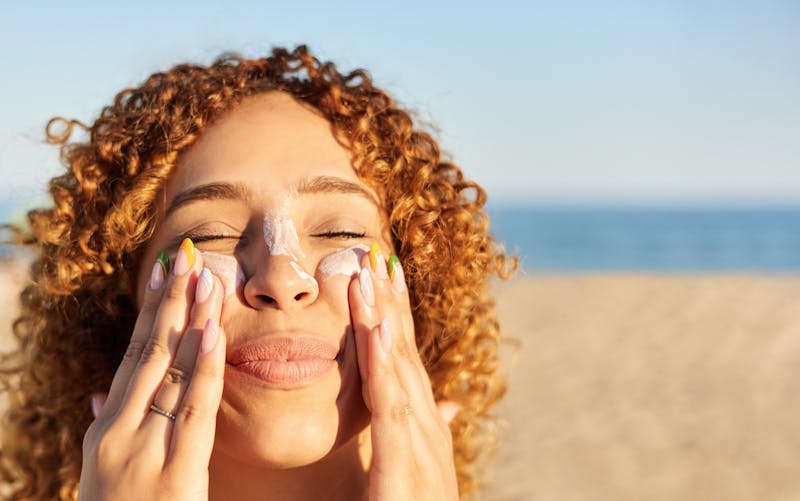
16 Jun 2025 | by Dr. Melissa Michelon
One of the greatest products for looking younger than your years is something easily found at your local drugstore. This would be sunscreen. As a board-certified dermatologist, my passion is to help you look and feel like the best version of yourself by keeping your skin healthy, plump and radiant. We want that “after workout” glow without the sweat. While every skincare regime must be individualized to a patient’s needs and desired goals, sunscreen is the one product that I recommend for everyone regardless of age, gender or ethnicity. Why? Because many of the early signs of aging such as fine lines, brown spots and skin laxity are caused and/or exacerbated by exposure to UVA and UVB light. So, the daily use of a broad spectrum sunscreen of at least SPF 30 will not only help prevent skin cancer, it’ll also protect the youthful appearance of your skin. Is it better to use a chemical sunscreen or a mineral sunscreen? The important thing is finding one that you like so that you’ll actually use it, but here are some things to consider.
Difference between Chemical Sunscreen and Mineral Sunscreen
All types of sunscreen protect your skin from sunlight. How they do this is what differentiates a chemical from a mineral sunscreen. The former uses chemical compounds such as:
• Oxybenzone • Octinoxate
• Avobenzone
These chemicals absorb the UV rays and convert them to heat, thus preventing them from reaching your skin. A mineral sunscreen, on the other hand, acts as an actual physical barrier that reflects the UV rays so that they never penetrate into your skin. The two main compounds used in a mineral sunscreen are:
• Zinc Oxide
• Titanium Oxide
A sunscreen may be all chemical, all mineral or a combination of the two.
Pros and Cons of a Chemical Based Sunscreen
The thing that people like most about a chemical based sunscreen is the feel. They are often lighter in texture and blend more easily into the skin. For this reason, chemical sunscreens tend to work well with all skin tones as they rub into the skin without leaving a white cast on the surface. This can be critical if you are someone with more melanin in your skin. They also may be more water resistant.
The downside to using a product where the chemicals go into the skin is that it can be irritating, especially for those with sensitive skin. There is also evidence that some of these chemical compounds may be causing environmental damage which is why most are banned in Australia in order to protect the coral reefs. The other con to a chemical based sunscreen is that it does not work immediately. You have to remember to apply it at least 15 minutes before heading outside.
Benefits of a Mineral Sunscreen
The three main benefits of choosing a mineral based sunscreen for protection are:
• Effective immediately
• May be better for sensitive and/or acne prone skin
• Less likely to harm marine life so more environmentally friendly
The biggest downside to a mineral based sunscreen has historically been the consistency. Many are heavy, thick and leave behind a Casper the ghost-like glow. However, there has been a great deal of advancement in the realm of mineral sunscreens in order to improve their ease of use so that they absorb quickly without leaving behind any white residue.
Why it’s Smart to Schedule a Skincare Consultation in Boston
While you can figure out the right sunscreen for you through trial and error, I am a big proponent, when possible, of scheduling an in-person skincare consultation. Sunscreen is critical. However, it is also just one component in a skincare regime. During your consultation, I will listen closely to your concerns and perform an in- depth physical exam. The right skincare regimen can help:
• Control breakouts
• Improve skin texture
• Reduce redness
• Address hyperpigmentation
• Rejuvenate face, neck & body
In my experience, when your skin looks good, you feel good.
To find out more about sunscreen, skincare, or any other aesthetic treatment with Dr. Melissa Michelon at Boston Center for Plastic Surgery, contact us today or call (617) 450-0070 to schedule a consultation.
